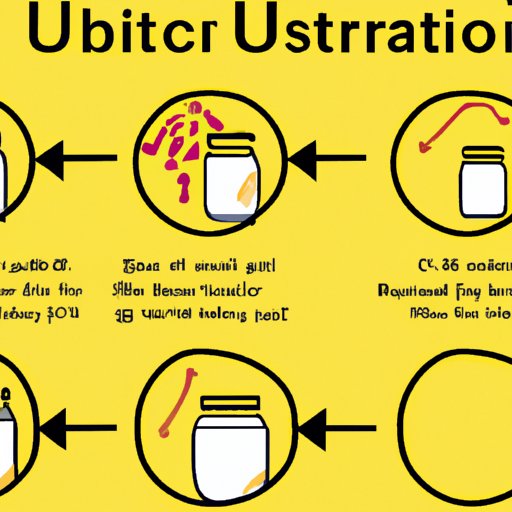Introduction
A urinalysis with reflex to culture is a medical test used to diagnose various conditions. It is often used when a patient has symptoms of an infection or other health issue in their urinary tract. In this article, we will explore what a urinalysis with reflex to culture is, the benefits it offers, the process involved, common conditions that can be diagnosed with it, potential complications, and the cost and insurance coverage associated with it.
Explaining the Basics: What is a Urinalysis with Reflex to Culture?
A urinalysis with reflex to culture is a laboratory test used to identify and diagnose problems in the urinary tract. It is typically requested by a doctor if a patient is experiencing symptoms such as pain while urinating, frequent urination, dark-colored urine, or cloudy urine. The purpose of this test is to determine the cause of these symptoms and provide an accurate diagnosis.
The test involves collecting a sample of the patient’s urine and examining it for any abnormalities. The sample will then be analyzed for the presence of bacteria, white blood cells, red blood cells, and other substances. If the results indicate the presence of any of these substances, a culture may be ordered to further analyze the sample.

Examining the Benefits of a Urinalysis with Reflex to Culture
A urinalysis with reflex to culture provides several advantages over other tests and procedures used to diagnose conditions in the urinary tract. Firstly, it is accurate and efficient, providing quick and reliable results. This means that patients can receive a diagnosis quickly and begin treatment right away. Additionally, it is a cost-effective option compared to other tests, such as imaging scans or biopsies.

Outlining the Process of a Urinalysis with Reflex to Culture
The process of a urinalysis with reflex to culture begins with the collection of a urine sample. This is usually done at a doctor’s office or lab. The patient will be instructed to collect a sample of their urine in a sterile container provided by the doctor or lab technician. Once the sample is collected, it will be sent to a lab for analysis.
At the lab, the sample will be examined for any abnormalities, such as bacteria, white blood cells, or red blood cells. If the results indicate the presence of any of these substances, a culture may be ordered to further analyze the sample. This involves growing the sample in a specialized medium and observing any changes in the growth pattern over time.
Highlighting Common Conditions Diagnosed Through a Urinalysis with Reflex to Culture
A urinalysis with reflex to culture can be used to diagnose a variety of conditions in the urinary tract, including:
- Urinary tract infections
- Kidney stones
- Diabetes
Reviewing Potential Complications from a Urinalysis with Reflex to Culture
Although a urinalysis with reflex to culture is generally safe, there are some potential risks and complications associated with the procedure. These include infection, allergic reactions, and other adverse reactions.
It is important to note that the risk of infection increases if the sample is not collected or handled properly. Therefore, it is important to follow all instructions carefully and use only sterile containers when collecting the sample.

Discussing the Cost and Insurance Coverage for a Urinalysis with Reflex to Culture
The cost of a urinalysis with reflex to culture varies depending on the type of test ordered and the facility where the test is performed. Generally, the cost ranges from $50 to $300. Most insurance plans cover the cost of the test, but it is important to check with your insurance provider to confirm coverage.
Conclusion
In conclusion, a urinalysis with reflex to culture is a medical test used to diagnose various conditions in the urinary tract. It is an accurate and cost-effective way to diagnose conditions such as urinary tract infections, kidney stones, and diabetes. While the procedure is generally safe, there are some potential risks and complications associated with it. It is important to speak with your doctor if you have any questions or concerns about the procedure. Additionally, it is important to check with your insurance provider to confirm coverage for the test.
(Note: Is this article not meeting your expectations? Do you have knowledge or insights to share? Unlock new opportunities and expand your reach by joining our authors team. Click Registration to join us and share your expertise with our readers.)
